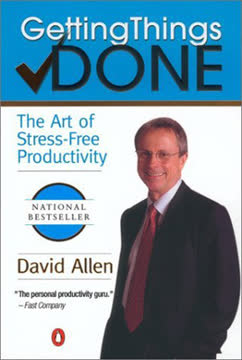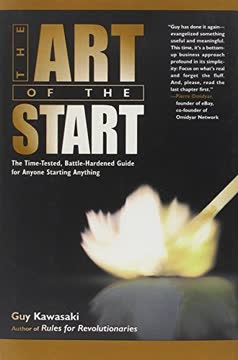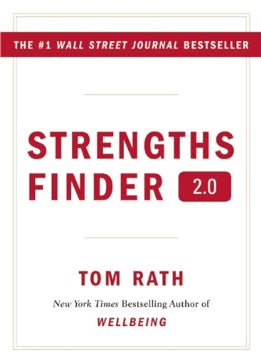मुख्य निष्कर्ष
1. स्वतंत्र सोचें: पारंपरिक ज्ञान को चुनौती दें
मैंने जो सबसे प्रभावशाली बात देखी है, वह यह है कि सफल लोग अप्रत्याशित जगहों में मूल्य खोजते हैं, और वे ऐसा व्यापार को मूल सिद्धांतों से समझकर करते हैं, न कि किसी फार्मूले से।
विपरीत सोच। यह पुस्तक व्यापक रूप से माने जाने वाले विश्वासों पर सवाल उठाने और स्वयं सोचने के महत्व को रेखांकित करती है। यह पाठकों को उन सच्चाइयों की पहचान करने के लिए प्रोत्साहित करती है जिनसे बहुत कम लोग सहमत होते हैं, क्योंकि ये विपरीत दृष्टिकोण नवाचार और सफल उद्यमों की ओर ले जाते हैं। इसका मतलब है स्थापित मॉडल और फार्मूलों से परे जाकर अनोखे अवसरों की खोज करना।
विपरीत प्रश्न। पीटर थिएल ने यह प्रश्न पूछा है, "कौन सी महत्वपूर्ण सच्चाई है जिस पर बहुत कम लोग आपसे सहमत हैं?" यह प्रश्न विपरीत सोच को प्रोत्साहित करता है। इसका उत्तर देने के लिए बौद्धिक कठोरता और साहस चाहिए, क्योंकि इसमें लोकप्रिय मान्यताओं को चुनौती देना और आलोचना का सामना करना शामिल है। यह उन क्षेत्रों की पहचान करने के बारे में है जहाँ पारंपरिक ज्ञान त्रुटिपूर्ण या अधूरा हो सकता है।
फार्मूलों से परे। सफल व्यक्ति और व्यवसाय पूर्व निर्धारित फार्मूलों या सर्वोत्तम प्रथाओं पर निर्भर नहीं करते। वे मूल सिद्धांतों से सोचते हैं, मान्यताओं पर सवाल उठाते हैं और अप्रत्याशित जगहों में मूल्य खोजते हैं। यह दृष्टिकोण उन्हें नए समाधान बनाने और ऐसे अवसरों को पकड़ने में सक्षम बनाता है जिन्हें अन्य लोग नजरअंदाज कर देते हैं।
2. निश्चित आशावाद अपनाएं: बेहतर भविष्य की योजना बनाएं
एक निश्चित आशावादी के लिए, भविष्य वर्तमान से बेहतर होगा यदि वह इसे बेहतर बनाने की योजना बनाता है और मेहनत करता है।
भविष्य के चार दृष्टिकोण। पुस्तक भविष्य के चार दृष्टिकोणों को बताती है: निश्चित आशावाद, अनिश्चित आशावाद, निश्चित निराशावाद, और अनिश्चित निराशावाद। निश्चित आशावाद, जो बेहतर भविष्य के लिए योजना बनाने और काम करने से पहचाना जाता है, प्रगति और सफल उद्यमों के निर्माण के लिए सबसे प्रभावी तरीका माना गया है।
निश्चित बनाम अनिश्चित। निश्चित आशावाद अनिश्चित आशावाद से अलग है, जहाँ लोग बिना किसी ठोस योजना के भविष्य के बेहतर होने की उम्मीद करते हैं। पुस्तक कहती है कि अनिश्चित आशावाद टिकाऊ नहीं है क्योंकि इसमें सार्थक बदलाव लाने के लिए आवश्यक ठोस क्रियाएँ और रणनीतियाँ नहीं होतीं। यह निराशावाद से भी अलग है, जो या तो निश्चित (खराब भविष्य के लिए तैयारी) हो सकता है या अनिश्चित (अवसाद को स्वीकार करना)।
योजना और क्रिया। निश्चित आशावाद में सावधानीपूर्वक योजना बनाकर और समर्पित प्रयास करके भविष्य को सक्रिय रूप से आकार देना शामिल है। इसके लिए स्पष्ट लक्ष्य निर्धारित करना, उन्हें प्राप्त करने के लिए रणनीतियाँ विकसित करना, और लगातार कार्रवाई करना आवश्यक है। यह अपने भविष्य को नियंत्रित करने और उसे अपने अनुसार बनाने के बारे में है।
3. एकाधिकार के लिए प्रयास करें: प्रतिस्पर्धा से बचें
सभी सफल कंपनियाँ अलग होती हैं: हर एक एक अनोखी समस्या को हल करके एकाधिकार हासिल करती है।
एकाधिकार बनाम प्रतिस्पर्धा। पुस्तक का तर्क है कि व्यवसाय के लिए प्रतिस्पर्धा नहीं, बल्कि एकाधिकार आदर्श स्थिति है। एकाधिकार कंपनी को स्थायी मूल्य प्राप्त करने और दीर्घकालिक नवाचार में निवेश करने की अनुमति देता है, जबकि प्रतिस्पर्धा नीचे गिरने की दौड़ और अस्थायी लाभों की ओर ले जाती है। क्योंकि पूंजीवाद पूंजी संचय पर आधारित है, लेकिन पूर्ण प्रतिस्पर्धा में सभी लाभ समाप्त हो जाते हैं।
रचनात्मक एकाधिकार। पुस्तक विनाशकारी एकाधिकारों और रचनात्मक एकाधिकारों के बीच अंतर करती है। रचनात्मक एकाधिकार वे होते हैं जो नवाचार को बढ़ावा देते हैं और समाज के लिए नए उत्पाद या सेवाएँ प्रदान करते हैं, जिससे पूरी तरह नई समृद्धि की श्रेणियाँ बनती हैं। ये एकाधिकार नवाचार और अनोखी समस्याओं के समाधान के माध्यम से अर्जित किए जाते हैं।
एकाधिकार के मिथक। कंपनियाँ अक्सर अपनी एकाधिकार स्थिति को छुपाती हैं ताकि जांच से बच सकें, जबकि प्रतिस्पर्धी कंपनियाँ अपनी विशिष्टता को बढ़ा-चढ़ाकर दिखाती हैं ताकि ध्यान आकर्षित कर सकें। इन पूर्वाग्रहों को समझना बाजार की स्थिति का सही आकलन करने और वास्तविक एकाधिकार के अवसरों की पहचान के लिए आवश्यक है।
4. मजबूत नींव बनाएं: मूल बातें सही करें
एक स्टार्टअप जिसकी नींव खराब है, उसे ठीक नहीं किया जा सकता।
शुरुआत का महत्व। पुस्तक स्टार्टअप के शुरुआती निर्णयों की महत्वपूर्णता पर जोर देती है। संस्थापक चरण में की गई गलतियाँ, जैसे गलत सह-संस्थापक चुनना या गलत लोगों को नियुक्त करना, बाद में सुधारना मुश्किल होता है। क्योंकि शुरुआत विशेष होती है और उसके बाद आने वाली सभी चीजों से गुणात्मक रूप से अलग होती है।
मजबूत नींव के मुख्य तत्व:
- संस्थापक गठबंधन: सह-संस्थापकों का बुद्धिमानी से चयन, साझा मूल्यों और पूरक कौशल सुनिश्चित करना।
- स्वामित्व, अधिकार और नियंत्रण: इन तत्वों को संरेखित करना ताकि संघर्ष से बचा जा सके और प्रभावी शासन सुनिश्चित हो।
- पूर्णकालिक प्रतिबद्धता: ऐसे कर्मचारियों को प्राथमिकता देना जो कंपनी के मिशन में पूरी तरह निवेशित हों।
- इक्विटी पर नकद को प्राथमिकता: दीर्घकालिक मूल्य सृजन के लिए इक्विटी का उपयोग करना, न कि अल्पकालिक लाभ के लिए।
संस्थापक क्षण का विस्तार। संस्थापक क्षण तब तक जारी रहना चाहिए जब तक कंपनी नई चीजें बना रही हो, और यह तब समाप्त होता है जब निर्माण रुक जाता है। यदि आप संस्थापक क्षण को सही ढंग से संभालते हैं, तो आप इसके दूर के भविष्य को नई चीजें बनाने की ओर मोड़ सकते हैं, न कि विरासत में मिली सफलता के संरक्षण की ओर। आप इसे अनिश्चित काल तक भी बढ़ा सकते हैं।
5. रहस्यों की खोज करें: अप्रयुक्त अवसरों का अन्वेषण करें
आज के सबसे प्रसिद्ध और परिचित विचार कभी अज्ञात और अनपेक्षित थे।
रहस्य अवसर हैं। पुस्तक का तर्क है कि दुनिया में अभी भी कई रहस्य हैं जो खोजे जाने के इंतजार में हैं। ये रहस्य नवाचार और मूल्यवान कंपनियों के निर्माण के लिए अप्रयुक्त अवसर प्रस्तुत करते हैं। इन रहस्यों को खोजने के लिए पारंपरिक ज्ञान को चुनौती देना और उन जगहों पर देखना आवश्यक है जहाँ अन्य लोग नहीं देखते।
रहस्यों के दो प्रकार:
- प्रकृति के रहस्य: भौतिक दुनिया के अनजाने पहलू जिन्हें वैज्ञानिक जांच के माध्यम से उजागर किया जा सकता है।
- मानव के रहस्य: मानव व्यवहार, प्रेरणाओं और इच्छाओं के छिपे हुए सत्य।
रहस्यों की खोज। रहस्यों की खोज का सबसे अच्छा स्थान वह है जहाँ कोई और नहीं देख रहा होता। यह अक्सर उन क्षेत्रों की खोज में शामिल होता है जिन्हें कम आंका गया है या नजरअंदाज किया गया है, मान्यताओं पर सवाल उठाना, और स्थापित मानदंडों को चुनौती देना। इसमें यह भी शामिल है कि लोग किन विषयों पर बात करने की अनुमति नहीं रखते।
6. वितरण महत्वपूर्ण है: बिक्री और विपणन में महारत हासिल करें
यदि आपने कुछ नया आविष्कार किया है लेकिन उसे बेचने का प्रभावी तरीका नहीं खोजा है, तो आपका व्यवसाय खराब है—चाहे उत्पाद कितना भी अच्छा क्यों न हो।
वितरण का महत्व। पुस्तक इस बात पर जोर देती है कि केवल एक शानदार उत्पाद होना सफलता के लिए पर्याप्त नहीं है। प्रभावी वितरण, जिसमें बिक्री, विपणन और विज्ञापन शामिल हैं, ग्राहकों तक पहुँचने और बाजार हिस्सेदारी हासिल करने के लिए आवश्यक है। क्योंकि ग्राहक केवल इसलिए नहीं आएंगे कि आपने उत्पाद बना दिया।
वितरण के तरीके:
- जटिल बिक्री: उच्च मूल्य वाली, व्यक्तिगत बिक्री जो उद्यम ग्राहकों के लिए होती है।
- व्यक्तिगत बिक्री: सीधे संपर्क के माध्यम से ग्राहकों के साथ संबंध बनाना।
- विपणन और विज्ञापन: व्यापक दर्शकों तक पहुँचने के लिए मास मीडिया का उपयोग।
- वायरल मार्केटिंग: नेटवर्क प्रभावों का उपयोग करके तेजी से वृद्धि प्राप्त करना।
वितरण का पावर लॉ। किसी व्यवसाय के लिए एक वितरण चैनल अन्य की तुलना में कहीं अधिक प्रभावी हो सकता है। उस एक चैनल में महारत हासिल करना कई चैनलों में प्रयास फैलाने से अधिक महत्वपूर्ण है।
7. मनुष्य और मशीन: परस्पर पूरकता को अपनाएं
कंप्यूटर मनुष्यों के लिए प्रतिस्थापन नहीं, बल्कि पूरक हैं।
मनुष्य और कंप्यूटर। पुस्तक का तर्क है कि कंप्यूटर मानव श्रमिकों के विकल्प नहीं हैं, बल्कि उनके पूरक हैं। भविष्य के सबसे मूल्यवान व्यवसाय वे होंगे जो लोगों को सशक्त बनाने की कोशिश करेंगे, न कि उन्हें अप्रचलित बनाने की। क्योंकि मनुष्यों में उद्देश्य होता है, जबकि कंप्यूटर डेटा को कुशलतापूर्वक संसाधित करने में माहिर होते हैं।
पूरक व्यवसाय। सबसे सफल व्यवसाय दोनों, मनुष्यों और कंप्यूटरों की ताकतों का लाभ उठाते हैं। इसमें ऐसे सिस्टम डिजाइन करना शामिल है जहाँ कंप्यूटर डेटा प्रोसेसिंग और विश्लेषण संभालते हैं, जबकि मनुष्य निर्णय, रचनात्मकता और रणनीतिक सोच प्रदान करते हैं।
कंप्यूटर विज्ञान की विचारधारा। कंप्यूटर वैज्ञानिक अक्सर उन कार्यों पर ध्यान केंद्रित करने के लिए प्रशिक्षित होते हैं जिन्हें स्वचालित किया जा सकता है, जिससे प्रतिस्थापन की ओर झुकाव होता है। हालांकि, तकनीक के सबसे मूल्यवान अनुप्रयोग मानव क्षमताओं को बढ़ाने में होते हैं, न कि उन्हें बदलने में।
8. संस्थापक का विरोधाभास: असाधारण सामान्य बनें
शायद हर आधुनिक राजा केवल एक बलीदान है जिसने अपनी खुद की मृत्यु को टाल दिया है।
अत्यधिक गुण। संस्थापक अक्सर चरम और विरोधाभासी गुण दिखाते हैं, जैसे कि वे अंदरूनी और बाहरी दोनों होते हैं, या करिश्माई और कठिन दोनों। ये गुण ताकत का स्रोत भी हो सकते हैं और संभावित कमजोरी भी।
संस्थापक वितरण। संस्थापकों के गुणों का वितरण एक उल्टा सामान्य वितरण होता है, जिसमें अधिक लोग चरम सीमाओं पर होते हैं बजाय मध्य के। यह असामान्य गुणों के संयोजन को दर्शाता है जो अक्सर सफल उद्यमियों से जुड़े होते हैं।
चरम का चक्र। असामान्य लोग इस चक्र की शुरुआत करते हैं, और अंत में वे और भी असामान्य व्यवहार करते और दिखते हैं। यह चक्र मीडिया ध्यान और सामाजिक अपेक्षाओं द्वारा मजबूत होता है, जो संस्थापक के व्यक्तित्व के सकारात्मक और नकारात्मक दोनों पहलुओं को बढ़ा सकता है।
अंतिम अपडेट:
FAQ
What's "Zero to One" about?
- Innovation Focus: "Zero to One" by Peter Thiel is about creating new things and building companies that innovate rather than replicate existing models. It emphasizes moving from 0 to 1, which means creating something entirely new.
- Contrarian Thinking: The book encourages thinking differently and finding unique opportunities that others might overlook. It challenges readers to identify secrets that can lead to groundbreaking businesses.
- Monopoly Over Competition: Thiel argues that successful businesses are those that create monopolies by offering something unique and valuable, rather than competing in crowded markets.
- Future of Technology: The book explores the future of technology and how entrepreneurs can shape it by focusing on complementarity between humans and machines.
Why should I read "Zero to One"?
- Entrepreneurial Insight: It provides valuable insights for entrepreneurs looking to build successful startups by focusing on innovation and unique value propositions.
- Strategic Thinking: The book offers strategic thinking tools for identifying and capitalizing on untapped opportunities in the market.
- Challenging Conventions: Thiel challenges conventional wisdom about competition and encourages readers to think differently about business success.
- Practical Advice: It includes practical advice on building a strong company culture, choosing the right team, and navigating the challenges of startup life.
What are the key takeaways of "Zero to One"?
- Monopoly Creation: Successful companies create monopolies by offering unique products or services that are significantly better than competitors.
- Secrets and Innovation: Finding secrets—unknown truths about the world—can lead to innovative business ideas and opportunities.
- Complementarity with Technology: The future of business involves complementing human capabilities with technology, rather than replacing humans with machines.
- Importance of Foundations: Building a strong foundation with the right team and structure is crucial for long-term success.
What is the "Zero to One" concept?
- From 0 to 1: The concept refers to creating something entirely new, as opposed to improving existing products or services (going from 1 to n).
- Innovation vs. Replication: It emphasizes innovation over replication, encouraging entrepreneurs to focus on groundbreaking ideas.
- Unique Value Creation: The goal is to create unique value that sets a company apart from competitors, leading to a monopoly.
- Singular Moments: The act of creation is a singular moment that results in something fresh and unprecedented.
How does Peter Thiel define a monopoly in "Zero to One"?
- Unique Offering: A monopoly is a company that offers a product or service so good that no other firm can offer a close substitute.
- Market Control: Monopolies have control over their market, allowing them to set prices and maximize profits.
- Creative Monopolies: Thiel argues that creative monopolies drive progress by providing new choices and abundance to society.
- Long-term Planning: Monopolies can make long-term plans and invest in ambitious projects, unlike companies in competitive markets.
What is the role of secrets in "Zero to One"?
- Undiscovered Opportunities: Secrets are unknown truths that can lead to innovative business ideas and opportunities.
- Contrarian Thinking: Finding secrets requires contrarian thinking and the willingness to explore areas others overlook.
- Natural and Human Secrets: Thiel distinguishes between secrets of nature (undiscovered scientific truths) and secrets about people (hidden human behaviors).
- Business Success: Successful companies are built around secrets that give them a competitive edge and create unique value.
How does "Zero to One" address the future of technology?
- Complementarity with Humans: Thiel emphasizes the complementarity between humans and machines, where technology enhances human capabilities.
- Beyond Substitution: The book argues against the notion that technology will replace humans, instead suggesting that it will empower them.
- Innovation Opportunities: Entrepreneurs should focus on how technology can solve hard problems and create new opportunities.
- Long-term Vision: The future of technology involves planning and creating new things that make the world better, not just different.
What is Peter Thiel's view on competition in "Zero to One"?
- Competition vs. Monopoly: Thiel argues that competition is destructive and that businesses should aim to create monopolies.
- Value Capture: In competitive markets, profits are eroded, whereas monopolies can capture lasting value.
- Creative Monopolies: Monopolies are beneficial because they drive innovation and provide new choices to consumers.
- Avoiding Competition: Entrepreneurs should avoid entering crowded markets and instead focus on creating unique solutions.
How does "Zero to One" suggest building a strong company culture?
- Mission Alignment: A strong company culture aligns employees with the company's mission and values.
- Team Cohesion: Thiel emphasizes the importance of hiring people who work well together and share a common vision.
- Unique Identity: Successful startups have a unique culture that differentiates them from other companies.
- Long-term Relationships: Building durable relationships within the company is crucial for long-term success.
What are the best quotes from "Zero to One" and what do they mean?
- "Every moment in business happens only once." This quote emphasizes the uniqueness of opportunities and the importance of seizing them.
- "What valuable company is nobody building?" It challenges readers to think about untapped opportunities and secrets that can lead to successful businesses.
- "Monopoly is the condition of every successful business." Thiel argues that creating a monopoly is essential for capturing lasting value and driving innovation.
- "The most contrarian thing of all is not to oppose the crowd but to think for yourself." This quote highlights the importance of independent thinking in identifying unique opportunities.
How does "Zero to One" address the concept of risk?
- Calculated Risk: Thiel encourages taking calculated risks by focusing on unique opportunities and secrets.
- Avoiding Competition: By avoiding crowded markets, entrepreneurs can reduce risk and increase the chances of success.
- Long-term Planning: Building a strong foundation and planning for the long term can mitigate risks and ensure sustainability.
- Innovation Over Imitation: Innovating rather than imitating reduces the risk of being outcompeted and increases the potential for creating a monopoly.
What is the significance of the "Founder's Paradox" in "Zero to One"?
- Extreme Traits: Founders often have extreme and contradictory traits that set them apart from others.
- Insider/Outsider Status: Successful founders are both insiders and outsiders, able to navigate different worlds and perspectives.
- Media Perception: The media often exaggerates founders' traits, creating a cycle of myth-making and public perception.
- Leadership Impact: A distinctive founder can inspire loyalty and drive a company to achieve extraordinary success.
समीक्षाएं
Zero to One, Start Now Get Perfect Later, Shoe Dog A Memoir by the Creator of Nike, [Hardcover] Crushing It 4 Books Collection Set की समीक्षाएँ आमतौर पर सकारात्मक हैं। 625 समीक्षाओं के आधार पर इस पुस्तक संग्रह को कुल मिलाकर 5 में से 4.38 स्टार की रेटिंग मिली है। एक पाठक ने इसे मुफ्त में पढ़ने की उत्सुकता जताई है, तो वहीं एक अन्य ने इसे "बहुत शानदार" बताते हुए पूर्ण 5 स्टार की रेटिंग दी है। इस उच्च औसत रेटिंग से यह स्पष्ट होता है कि अधिकांश पाठकों ने इस पुस्तक संग्रह को मूल्यवान और ज्ञानवर्धक पाया है, हालांकि इन संक्षिप्त समीक्षाओं में संग्रह की सामग्री या व्यक्तिगत पुस्तकों के बारे में विशेष जानकारी नहीं दी गई है।
Similar Books









![Zero to One, Start Now Get Perfect Later, Shoe Dog A Memoir by the Creator of Nike, [Hardcover] Crushing It 4 Books Collection Set](https://images.sobrief.com/social/cover_zero-to-one-start-now-get-perfect-later-shoe-dog-a-memoir-by-the-creator-of-nike-hardcover-crushing-it-4-books-collection-set_360px_1747184952.jpg)




